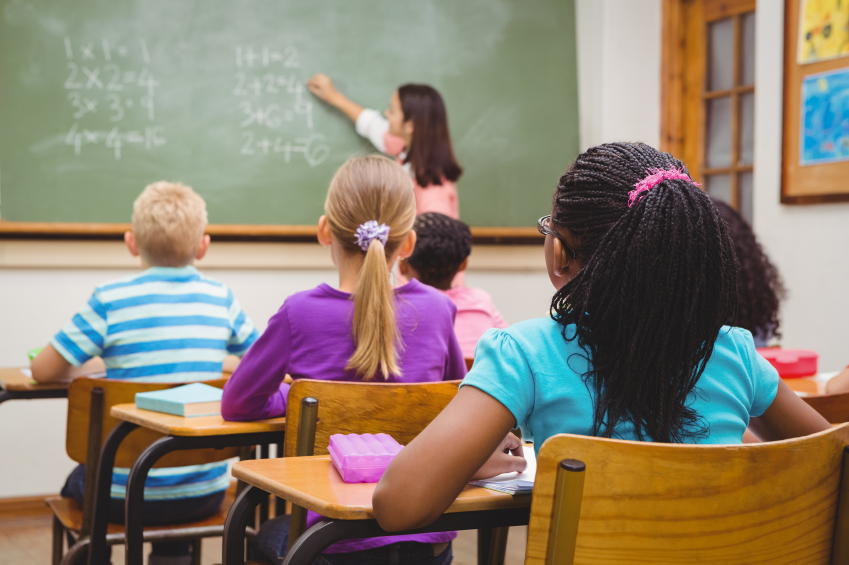
Some children are very smart. They use big words – adult words – at a very young age. They learn very quickly. They ask a lot of questions. When they get to school, they become very good students and get good grades.
These smart children become labeled by parents and teachers as high achievers or gifted students. But is there a difference between these types and labels? Or should we just lump them together as being “different” or “special?”
Actually, the two types of students are very different in many ways, from learning styles to handling emotions to language and study habits.
Some differences are obvious and are part of the category definitions for each “label.” Other characteristics are similar and make it a little more difficult to discern one from the other.
Some children exhibit the characteristics of both kinds and can be both gifted and high achieving. It is worthwhile to look at the two types of students to see what is important to each and to become more knowledgeable in helping them.
The gifted student: innate abilities
Gifted students have higher IQs than other students with advanced aptitudes and potential for demonstrating exceptional levels of proficiency in one or more areas of endeavor. That includes areas like math, science, language, music, art, communication, or almost any area of high interest.
Researchers have established ranges for giftedness, from “Mildly Gifted” with IQs of 115-129 to “Profoundly Gifted” with IQs of 160+. The IQ levels are identified by tests and subtests to assess various cognitive abilities and are given by registered clinical psychologists
Gifted students grasp information so quickly and remember it so well that they don’t really have to study hard. They don’t need to acquire organizational skills or other higher-order intellectual disciplines to guide them.
Gifted students can fly through elementary and secondary schools and get to the college or university level with ease. But as more and more demands get placed on them, they can be overwhelmed and become frustrated.
These students can benefit from academic counselors who will show them how to organize material, plan their homework and study schedules, and develop good study habits.
At the elementary level, these students need an individualized education plan (IEP) which addresses both their strengths and weaknesses. These plans look at what the children are good at (speaking, drawing, telling stories, interact with people, etc.).
The plans also look at disabilities and where the students need assistance. Sometimes the student creates a portfolio that shows personal strengths and helps teachers understand him or her better.
Recommendations might be working with a peer student or in groups, or practice speaking, or other projects to encourage skill development and the feelings of success. The plan helps the student establish and work toward specific goals.
Gifted students strive for perfection. They want to master everything they try. This sometimes leads to failure and frustration. Gifted students have trouble coping with failure. Teachers and parents need to help these students learn to handle failure and provide the emotional support they need.
Emotional balance is very important for gifted students. They feel things very intently and can become obsessed over their particular interests. They have imaginations and different views of the world and delve deeper into subjects than other students. They can react unexpectedly in almost any situation.
The high achievers: earned abilities
Smart students are easy to recognize. They always have their hands up to answer questions. They volunteer for projects. They are joiners and leaders.
High achievers know how to study. They have good study habits and spend a lot of time on homework and getting ready for tests. They are hard workers.
Enrichment for high achievers can include special projects, field trips, leading group activities, advanced programs, or outside events and activities that they pursue on their own.
These students can also act as tutors for other students if they are asked to do so – and agree as a personal choice. Achievers can share their own personal ways of looking at problems and reveal their insights that can help their peers.
Just like gifted students, achievers do not like failure, either. But the difference is that achievers get over it quickly. It is not the emotional burden it is for gifted students.
High achievers know they work hard and are generally happy with their work ethic and results. Conversely, gifted students are highly self-critical and always feel they could have done more.
High achievers ask questions that typically have answers. On the other hand, gifted students as hypothetical questions and abstract questions that are more difficult to answer and may in fact have more than one answer. They think in abstracts.
Sense of fairness is another differentiator. High achievers understand fairness as it applies to them in various situations. Gifted students, however, are very concerned about fairness not only regarding themselves and peers but also on a much larger scale.
High achievers prefer to learn in a sequential manner and typically need 6-8 repetitions to learn material. Gifted students like complexity and need only 1-2 exposures to material to learn it.
This has far-reaching implications for teaching and learning environments. Repetition is a traditional educational philosophy in most public schools. This approach favors high achievers but hurts gifted students.
Private schools for the gifted and specialized programs for gifted students in public schools minimize repetition and focus on enrichment, faster pace, multitude of media, and independent study.
Both types face problems
Both gifted and achievers have problems, whether academic, emotional or social. Many gifted students can lack motivation, be misunderstood in school, fail, underachieve, and even drop out of school. Giftedness is often associated with learning disorders.
Some gifted children are “twice exceptional” or “twice blessed” and have Autism Spectrum disorder, Attention Deficit Disorder, Asperger’s, physical disabilities or other challenges. In cases like these, obviously medical, psychological and social professionals should become involved.
So it is important to really understand the nature of your child’s intelligence. In addition to educational concerns there can be emotional, social and medical issues that are of equal or even greater importance that need to be addressed.




